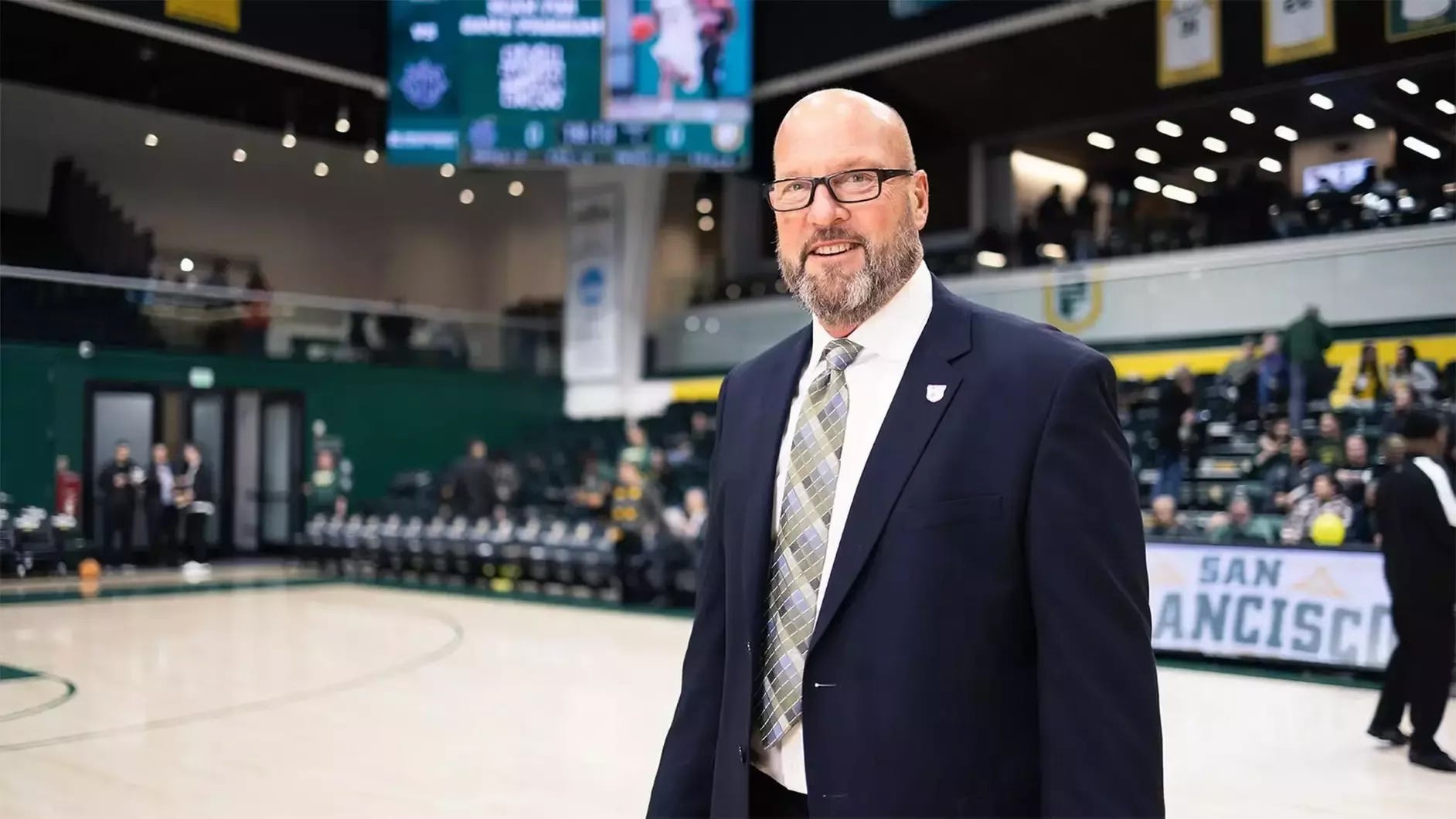Canzano: Larry Williams made an impact
"I'm just going to do my best," he said.
I attended Larry Williams’ introductory news conference in 2004 when he was named athletic director at the University of Portland.
The guy stood 6-foot-5.
He looked like a skyscraper in a suit.
We talked about Notre Dame football after he was introduced. I’d covered the football team a few years earlier as a beat reporter. Williams had played offensive line for the Irish in the 1980s, becoming an All-American.
Williams died on Thursday.
He was 62.
Williams was having a morning workout at the University of San Francisco, where he served as AD. He was found unresponsive in the weight room.
“A heart-related issue,” someone told me.
Life moves fast sometimes. Never quicker than when you hear someone you once knew and spoke with on a fairly regular basis is dead. It’s like Nathanial Hawthorne wrote, “Time flies over us, but leaves its shadow behind.”
As the sad news spread on Thursday, Williams was identified and his life explained and given context in the usual ways.
“Athletic Director.”
“Ex-Notre Dame player.”
“Eight seasons in the NFL.”
He was a father, a husband, and a grandfather, too. He married a former Notre Dame tennis player, Laura Lee. Williams was also a devout Catholic and had a law degree. He became a lawyer while he was playing football in the NFL.
Wrap your head around that feat.
There were always bigger aspirations than football for Larry Williams. After his retirement, he went to work for a law firm in the Midwest, then got hired at Notre Dame, where he was put in charge of licensing.
The world of college athletics is a magnet for some. Williams had such a positive experience as a college football player that nobody was surprised when he was drawn back to the campus in South Bend.
When I met Williams that day in 2004, he was being introduced as an athletic director at the University of Portland. It was his first time being an AD. I remember him sitting at a table in front of a “UP” banner alongside his new boss, an ordained priest named William Beauchamp. They’d previously worked together at Notre Dame.
UP didn’t have a football program. It had budget challenges and enrollment questions. Williams had no proof of buoyancy as a college AD and was being thrown into the high seas.
“What’s your plan?” I asked Williams that day.
“I’m just going to do my best,” he said.
Father Beauchamp didn’t seem worried. Williams sounded confident. I remember leaving that news conference and thinking, “Well, the guy has a good handshake.”
Williams spent seven years at UP. He left the athletic department better than he found it. Marquette University hired him, then the University of Akron. Then, he went to USF. I think the greatest professional compliment I can pay Williams is that people stopped leading with, “You know, Larry used to play in the NFL,” and started saying things such as, “He’s a really good AD. He cares.”
The world of college athletics shifted and evolved, but Williams gravitated toward jobs at cozy faith-based schools, where he could make a difference. I wasn’t surprised that the news of his death hit like a bag of bricks on those campuses.
When someone dies, we say they’re “gone.”
I understand why. But in recent years, I’ve wondered about that. Mike Leach doesn’t feel gone and erased, does he? His fingerprints are still all over college football. He comes up frequently in this column. His impact left a crater in his wake.
When former Oregon defensive back Khyree Jackson was killed in a car crash two summers ago, his Minnesota Vikings teammates vowed they’d never forget him. They’d never even played a game with Jackson, 24, but one by one, they laid their Bibles down at his empty locker before games last season.
Gone?
It didn’t feel like it in Minnesota.
Larry Williams died on Thursday.
I feel for his children, his spouse, and his grandchildren. I’m sad for his co-workers and the athletes at USF who knew Williams woke up every day and did his best for them. He was way too young. His heart stopped, and his life was interrupted in that weight room. Williams died. But his impact is still out there, all around.
Please consider a gift subscription for a friend or family member, or the donation of a paid subscription to a senior on a fixed budget:



Great job John! This is why your readers love your writing. You show the humanity of it all and tell what really matters!
Your writing is the conduit for knowing someone we will never meet.
My sympathies to the Williams family and community.